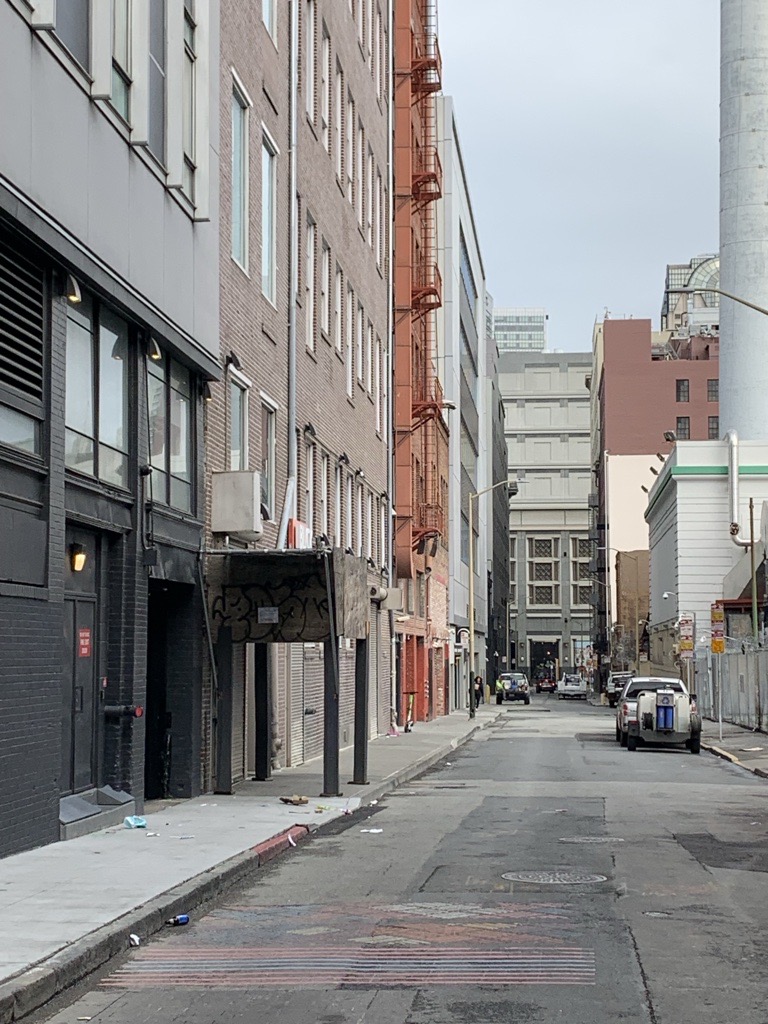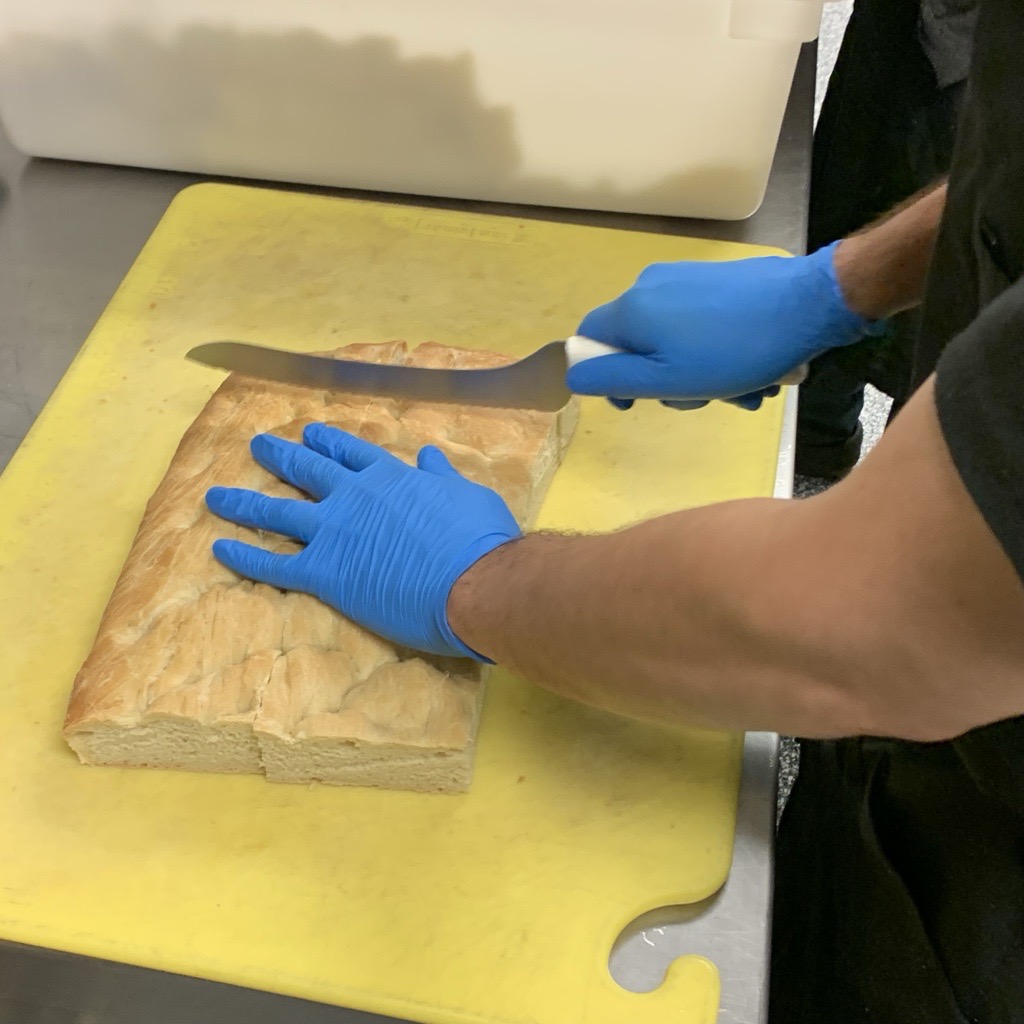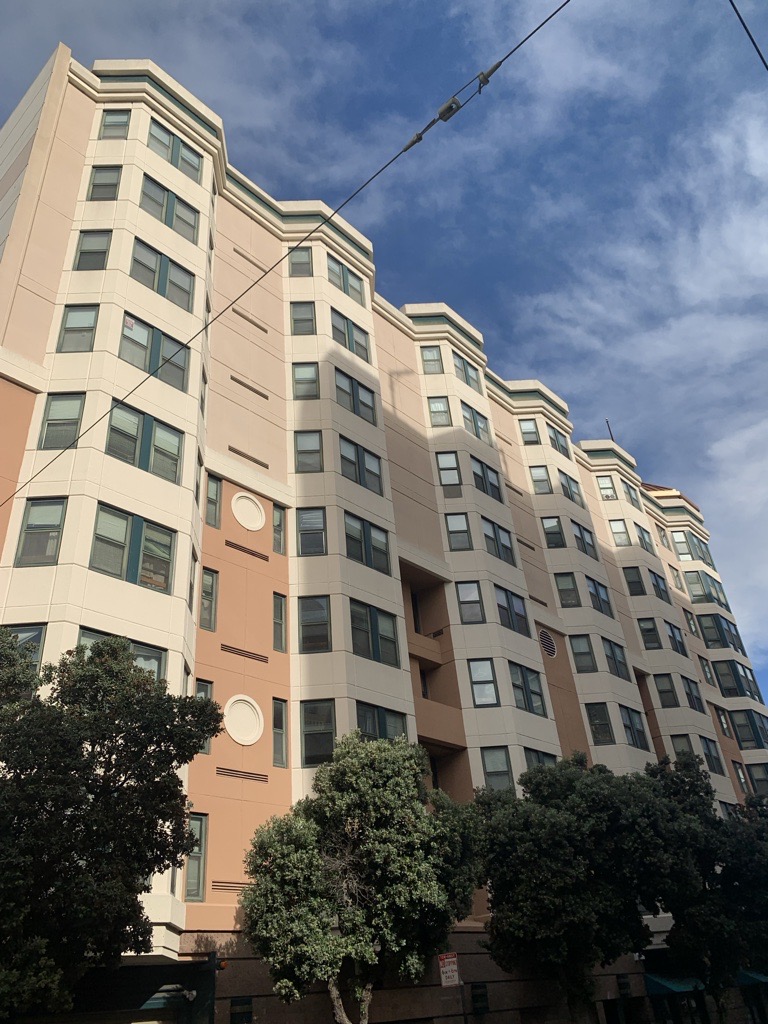From the Streets to Stability: A New Year and a New Beginning
January 4, 2024

The transformative impact of St. Anthony’s is vividly illustrated through the moving story of Gregory, a dedicated member of our Dining Room team for more than a year. Gregory’s life began in Detroit in 1983. Tragically, at only one year old, he was abandoned, leading a concerned neighbor to contact Child Protective Services after hearing his prolonged cries. This call set in motion his rescue from a home marked by profound neglect, which led to his journey through the foster care system.
He said his whereabouts remain a mystery between the ages of one and three. At three, however, he was placed with a compassionate foster mother in inner-city Detroit. Despite the neighborhood’s crime and danger, Gregory said, “My basic needs were met, and my mom offered me a warm home in a protective and caring environment.”
Gregory lived there until he was 24 when tragedy struck, and his adopted mother passed away due to diabetes and heart disease, leaving him alone in the house. He was unable to cope with the financial burden of the house due to the emotional burden of losing his mother, a developmental disability that had not been addressed, and no income. After six months, he made a decision to walk out the front door into homelessness and Detroit’s inadequate social services system. To this day, he does not know what happened to his childhood home. “When I recently looked for it on Google Street View,” he said, “It was no longer there, just an empty lot.” He has yet to find out what eventually came of the house.
While still experiencing homelessness two years later, at 26, Gregory responded to a newspaper ad for a traveling sales job. This decision brought him to an unsavory motel in Chicago, which he described as dangerous and drug-infested, and then on a fruitless cross-country sales trip, which left him stranded in Lodi, California. Of life in Lodi, he recalled, “I slept on a sidewalk behind a building for a year and found clothes and food from time to time at a Salvation Army facility. I begged passers-by for money to buy alcohol to numb myself to the extreme discomfort of living on the streets. Life was oftentimes brutal.” Gregory’s alcoholism quickly developed in severity until he was drinking 24 hours a day.
On the advice of a friend who was also experiencing homelessness in Lodi, Gregory found a way to hitch a ride on a bus headed to San Francisco. When he arrived, he described it as a place that was “totally alien” to him. “The city’s liberal culture, terrain, and homeless population took some getting used to—even for me,” he said. For almost two years, he lived on the particularly desperate alleyways around 6th Street, between Market and Mission. Unsurprisingly, he grew more isolated and continued to drink.
A turning point came when he learned about the San Francisco Human Services Agency. After multiple attempts in rare moments of clarity while in the throes of alcoholism, Gregory was able to secure a monthly stipend and a bed in the MSC South Homeless Shelter in SoMa. “The shelter was tough. It was oftentimes just as harsh as living on the streets, and just as dangerous, but it provided a roof over my head,” he said.

Having a bed to sleep in allowed Gregory the rest to find more clarity about his situation, and, for the first time since he left Detroit, a job and hope for the future. “I got a job at Costco, serving food samples to customers. I could interact with different people, which was awkward, but better than not interacting with anyone at all,” he said. It is important to pause here and note that Gregory held a job for more than a year while living in a shelter where he was required to leave with all his belongings each morning. He was not permitted to re-enter until the evening and was still able to make it to work each day while continuing to battle an addiction to alcohol – nothing short of a miracle.
After more than a year at the shelter, the Human Services Agency transferred Gregory into a single-room occupancy (SRO) on O’Farrell and Jones—the first time he had a place since he left Detroit six years prior. The transition was stressful without the support he needed, however, and he sank deeper into alcoholism. “I ended up living in almost total isolation in my room and was drinking around the clock. I lost my job at Costco due to an interpersonal conflict and relied on General Assistance to pay for my room and food stamps, with the rest going to booze,” he said.
In 2016, at 32, a neighbor recommended the Father Alfred Center (FAC), St. Anthony’s recovery program for men. In another moment of clarity, he abandoned his room to enter the year-long program. He has no regrets. “I found not just shelter at St. Anthony’s, but also a community that seemed to care about me and help me to look at myself in the mirror,” he said. “I found more hope and started to envision a better future for myself.”

At FAC, Gregory said he was able to come to terms with unresolved grief from his past, his struggle with alcoholism, and a diagnosis of severe depression. He was also able to finally address another critical aspect of his struggles—a developmental disability that had gone unaddressed. Having recognized this, he said, “Father Alfred’s connected me to the Golden Gate Regional Center (a specialized agency that provides support for people with developmental disabilities).” This was a crucial step in Gregory’s path to stability.
There, Gregory received tailored support that acknowledged the complexity of his needs. Working together, we secured affordable housing for him after he graduated from FAC, which drastically improved his quality of life. His rent is capped at a manageable portion of his income and provides him with much-needed security.
Now employed for over a year at St. Anthony’s (which is conveniently located across the street from his apartment), Gregory said, “My life is filled with hope and community. I have regular interactions with healthcare professionals at the Medical Clinic, support from my Companion in the Companionship Program, and get to interact with the St. Anthony’s community every day.” For the first time in his life, he can support himself entirely with the money he earns, and he has been sober for almost two years. He often thinks about what the future has in store for him.
His journey, marked by profound challenges and remarkable resilience, is a testament to the power of St. Anthony’s holistic care approach and our Franciscan values baked into the idea of unconditional service and community healing. Gregory inspires us. He is a beacon of hope and a powerful example of how when we come together as a community of donors, volunteers, team members, experts, local officials, and partnerships, there is healing that leads to new beginnings for heroic people like Gregory.













































